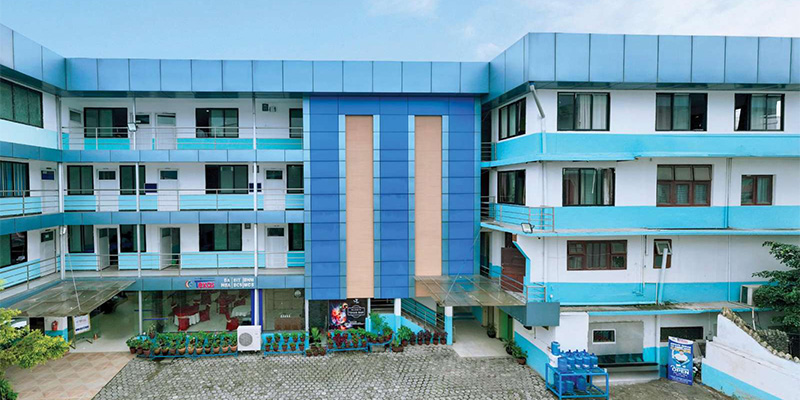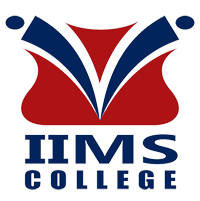Overview
Master of Computer Science (MCS) at Texas College of Management and IT
If you're from an engineering or IT background and want to gain advanced knowledge in software development, systems architecture, or information security, the Master of Computer Science (MCS) at Texas College of Management and IT (TCMIT), Sifal, Kathmandu, offers a practical path.
This course is affiliated with Lincoln University College, Malaysia, and is recognized by Nepal’s Ministry of Education, Tribhuvan University, and the Malaysian Qualifications Agency (MQA).
The MCS program runs over two years, divided into four semesters, totaling 66 credit hours. The course structure introduces core computing concepts while allowing students to specialize based on their interests and career goals.
It is conducted in the evening shift, offering flexibility for working professionals or students balancing other commitments.
Highlights
-
Course Name: Master of Computer Science (MCS)
-
College: Texas College of Management and IT (TCMIT), Sifal, Kathmandu
-
Affiliation: Lincoln University College, Malaysia
-
Duration: 2 Years (4 Semesters)
-
Total Credit Hours: 66
-
Medium of Instruction: English
-
Entry Requirement: Undergraduate degree in Engineering or IT
-
Shift: Evening
-
Accreditation: MQA, MOE, TU equivalence
-
Intake: Fall Semester
Curriculum Details
Here’s what you’ll study during the program:
The curriculum is structured to provide foundational and specialized knowledge in computing. Students learn about:
-
Advanced programming methodologies
-
Systems analysis and design
-
Software project management
-
Artificial intelligence fundamentals
-
Cybersecurity principles and frameworks
-
Data science and database management
-
Research methods and academic writing
Throughout the course, students work on lab-based projects and applied research to understand practical computing challenges.
Objectives
This course is developed to help students:
-
Gain mastery over advanced computing principles and techniques
-
Strengthen problem-solving and algorithmic thinking
-
Conduct system analysis for real-world computing problems
-
Build, evaluate, and manage IT infrastructure in various sectors
Scope
The scope of this program extends across academic, research, and industry roles. Graduates are positioned to work in software development, cybersecurity, IT consultancy, research, and teaching.
For those pursuing further studies, the degree prepares students for MPhil or PhD programs in computer science or related areas.
Learning Outcomes
After completing the program, students will be able to:
-
Develop scalable software solutions
-
Analyze system performance and provide enhancements
-
Apply modern techniques in cybersecurity and data analysis
-
Interpret and implement academic and industry research
Skill Development Modules
Students develop:
-
Software engineering practices and technical documentation
-
Team collaboration and code review participation
-
Project development using modern software tools
-
Skills in troubleshooting, debugging, and performance tuning
Teaching Methodology
Teaching is structured through:
-
Instructor-led lectures with lab integration
-
Seminar-style group work and presentations
-
Guest lectures from academics and industry professionals
-
A final project and research report submission
Admission Requirements
To be eligible:
-
Applicants must have an undergraduate degree in engineering or IT
-
Academic transcripts and supporting documents are required
-
Shortlisted candidates may be invited for an interview
Career Opportunities
Graduates can explore positions such as:
-
Computer and Information Systems Manager
-
Software Development Engineer
-
Network Architect
-
Information Security Analyst
-
Database Administrator
-
Computer Systems Analyst
-
Research Scientist in Computing
Scholarships and Financial Aid
Scholarships are available based on:
-
Academic merit (performance in undergraduate studies)
-
Financial need assessment
-
Reservation quotas for disadvantaged regions
Why Choose This Course?
If you're focused on expanding your technical and research capabilities in computing and want a structured, globally recognized degree, this course is developed to prepare you for that transition. The evening format supports working students or those requiring flexible learning schedules.
Conclusion
In Nepal’s growing digital and technological sectors, the Master of Computer Science from TCMIT offers a focused academic route for those seeking advanced IT roles. The program emphasizes real-world relevance and academic depth, supporting both professional development and higher study aspirations




















